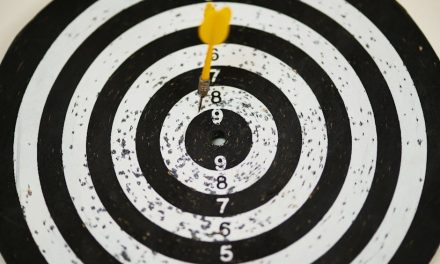Table of Contents
Unleashing Potential: HR’s Impact on Dynamic Performance Management
Introduction
Introduction:
Dynamic performance management is a modern approach to managing employee performance that focuses on continuous improvement, agility, and adaptability. In this context, the role of Human Resources (HR) becomes crucial in facilitating and supporting the implementation of dynamic performance management practices within an organization. HR professionals play a vital role in designing and implementing performance management systems that align with the organization’s goals, values, and culture. They also provide guidance and support to managers and employees throughout the performance management process, ensuring fairness, transparency, and effectiveness. This article explores the role of HR in dynamic performance management and highlights the key responsibilities and challenges faced by HR professionals in this evolving field.
The Importance of HR’s Role in Dynamic Performance Management

Exploring HR’s Role in Dynamic Performance Management
Performance management is a critical aspect of any organization’s success. It involves setting goals, providing feedback, and evaluating employee performance to ensure that individuals and teams are working towards achieving the company’s objectives. In recent years, there has been a shift towards dynamic performance management, which emphasizes continuous feedback and ongoing development. This approach requires HR to play a more active role in supporting and facilitating the process.
One of the key reasons why HR’s role in dynamic performance management is important is because it helps create a culture of continuous improvement. Traditional performance management systems often focus on annual or biannual performance reviews, which can be seen as a one-time event rather than an ongoing process. In contrast, dynamic performance management encourages regular check-ins and feedback sessions, allowing employees to receive timely guidance and support. HR professionals can help establish this culture by training managers on how to provide effective feedback and coaching, as well as by implementing tools and technologies that facilitate ongoing communication.
Another reason why HR’s involvement in dynamic performance management is crucial is because it helps align individual goals with organizational objectives. In a rapidly changing business environment, it is essential for employees to understand how their work contributes to the overall success of the company. HR can play a key role in ensuring that performance goals are aligned with the organization’s strategic priorities. By working closely with managers and employees, HR professionals can help set clear expectations and objectives that are in line with the company’s vision and mission.
Furthermore, HR’s involvement in dynamic performance management can help identify and address performance issues in a timely manner. By regularly monitoring employee performance and providing feedback, HR professionals can identify areas where individuals may be struggling and provide the necessary support and resources. This proactive approach can help prevent performance issues from escalating and ensure that employees have the tools and skills they need to succeed. HR can also play a role in developing performance improvement plans and providing training and development opportunities to help employees overcome challenges and reach their full potential.
In addition to these benefits, HR’s involvement in dynamic performance management can also contribute to employee engagement and retention. When employees feel that their contributions are valued and that they have opportunities for growth and development, they are more likely to be engaged and committed to their work. HR professionals can help foster a positive work environment by recognizing and rewarding high performers, providing opportunities for career advancement, and promoting a culture of continuous learning and development.
In conclusion, HR’s role in dynamic performance management is of utmost importance. By creating a culture of continuous improvement, aligning individual goals with organizational objectives, addressing performance issues in a timely manner, and fostering employee engagement and retention, HR professionals can contribute significantly to the success of an organization. It is essential for HR to embrace the principles of dynamic performance management and actively support and facilitate the process. By doing so, HR can help drive organizational performance and create a positive and productive work environment.
Strategies for Implementing Dynamic Performance Management in HR
Exploring HR’s Role in Dynamic Performance Management
Strategies for Implementing Dynamic Performance Management in HR
In today’s fast-paced and ever-changing business environment, organizations are increasingly recognizing the need for a more dynamic approach to performance management. Traditional performance management systems, with their annual reviews and rigid goal-setting processes, are no longer sufficient to keep up with the demands of the modern workplace. As a result, many companies are turning to dynamic performance management, a more flexible and continuous approach that focuses on real-time feedback and ongoing development.
Implementing dynamic performance management requires a strategic and thoughtful approach, and HR plays a crucial role in this process. HR professionals are responsible for designing and implementing the systems and processes that support effective performance management. They are also responsible for ensuring that managers and employees are equipped with the necessary tools and resources to succeed in this new approach.
One of the key strategies for implementing dynamic performance management in HR is to shift the focus from evaluation to development. Traditional performance management systems often prioritize evaluation, with the primary goal being to assess an employee’s performance against predetermined goals and objectives. In contrast, dynamic performance management emphasizes ongoing development and growth. HR can support this shift by providing managers and employees with training and resources on how to give and receive feedback, set meaningful goals, and create development plans.
Another important strategy is to leverage technology to support dynamic performance management. Technology can play a significant role in facilitating real-time feedback, goal tracking, and ongoing communication between managers and employees. HR professionals can work with IT departments to identify and implement the right tools and systems that align with the organization’s performance management goals. This may include performance management software, mobile apps, or other digital platforms that enable continuous feedback and goal tracking.
Furthermore, HR can play a critical role in fostering a culture of continuous learning and improvement. Dynamic performance management requires a mindset shift, where employees are encouraged to seek out feedback, take ownership of their development, and embrace a growth mindset. HR can support this cultural shift by promoting learning and development opportunities, providing coaching and mentoring programs, and recognizing and rewarding employees who demonstrate a commitment to ongoing improvement.
Additionally, HR professionals can help ensure that performance management processes are fair, transparent, and aligned with the organization’s values and objectives. This includes establishing clear performance expectations, providing regular updates on performance, and ensuring that performance evaluations are based on objective criteria. HR can also play a role in addressing any performance issues or conflicts that arise, providing guidance and support to managers and employees as needed.
In conclusion, implementing dynamic performance management in HR requires a strategic and thoughtful approach. HR professionals play a crucial role in designing and implementing the systems and processes that support effective performance management. By shifting the focus from evaluation to development, leveraging technology, fostering a culture of continuous learning, and ensuring fairness and transparency, HR can help organizations successfully transition to a more dynamic approach to performance management. With the right strategies in place, organizations can empower their employees to reach their full potential and drive success in today’s rapidly changing business landscape.
How HR Can Drive Employee Engagement through Dynamic Performance Management
Exploring HR’s Role in Dynamic Performance Management
In today’s fast-paced and ever-changing business landscape, organizations are constantly seeking ways to improve their performance management processes. One approach that has gained significant attention is dynamic performance management, which focuses on continuous feedback and development rather than the traditional annual performance review. While this shift in mindset and approach may seem daunting, HR professionals play a crucial role in driving employee engagement through dynamic performance management.
First and foremost, HR professionals are responsible for designing and implementing performance management systems that align with the organization’s goals and values. By understanding the unique needs and challenges of the organization, HR can create a performance management framework that fosters a culture of continuous improvement and growth. This involves developing clear performance expectations, establishing meaningful metrics, and providing employees with the necessary tools and resources to succeed.
Furthermore, HR professionals are instrumental in training managers and supervisors on how to effectively provide feedback and coach their employees. Dynamic performance management relies heavily on ongoing conversations and dialogue between managers and their team members. HR can facilitate workshops and training sessions to equip managers with the skills and knowledge needed to have these conversations in a constructive and supportive manner. By doing so, HR ensures that employees receive regular feedback and guidance, which in turn enhances their engagement and performance.
In addition to training managers, HR professionals also play a vital role in fostering a culture of recognition and appreciation. Dynamic performance management emphasizes the importance of acknowledging and celebrating employees’ achievements and contributions. HR can implement recognition programs and initiatives that encourage managers and peers to recognize and reward exceptional performance. By doing so, HR not only boosts employee morale but also reinforces the organization’s commitment to recognizing and valuing its employees.
Moreover, HR professionals are responsible for monitoring and evaluating the effectiveness of the performance management system. Through data analysis and feedback surveys, HR can identify areas for improvement and make necessary adjustments to the system. This continuous evaluation ensures that the performance management process remains relevant and impactful, driving employee engagement and organizational success.
Furthermore, HR professionals can leverage technology to enhance the effectiveness of dynamic performance management. With the advent of performance management software and tools, HR can streamline the feedback and development process. These tools enable real-time feedback, goal tracking, and performance analytics, providing HR with valuable insights into employee performance and engagement. By leveraging technology, HR can not only improve the efficiency of the performance management process but also enhance the overall employee experience.
In conclusion, HR professionals play a critical role in driving employee engagement through dynamic performance management. By designing and implementing performance management systems that align with the organization’s goals, training managers on effective feedback and coaching, fostering a culture of recognition and appreciation, monitoring and evaluating the system’s effectiveness, and leveraging technology, HR can create an environment that promotes continuous improvement and growth. Through their efforts, HR professionals contribute to the success of the organization by ensuring that employees are engaged, motivated, and empowered to reach their full potential.
The Future of HR’s Role in Dynamic Performance Management
The future of HR’s role in dynamic performance management is an exciting and evolving field. As organizations continue to recognize the importance of effectively managing employee performance, HR professionals are being called upon to play a more strategic role in this process. Gone are the days of annual performance reviews and rigid performance metrics. Instead, organizations are embracing a more dynamic approach to performance management that focuses on continuous feedback, coaching, and development.
One of the key reasons for this shift is the changing nature of work. In today’s fast-paced and ever-changing business environment, organizations need to be agile and adaptable. This means that employees must also be able to quickly learn new skills, adapt to new technologies, and respond to changing market conditions. Traditional performance management systems, with their focus on annual reviews and static goals, simply do not provide the flexibility and agility that organizations need.
Dynamic performance management, on the other hand, is designed to be more responsive and flexible. It emphasizes ongoing feedback and coaching, allowing employees to make adjustments and improvements in real-time. This approach recognizes that performance is not a one-time event, but rather an ongoing process that requires continuous attention and support.
HR professionals play a critical role in implementing and supporting dynamic performance management systems. They are responsible for designing and implementing performance management processes that align with the organization’s goals and values. This includes developing clear performance expectations, establishing meaningful metrics, and providing managers with the tools and resources they need to effectively manage performance.
In addition to designing the performance management process, HR professionals also play a key role in training managers and employees on how to effectively use the system. This includes providing training on giving and receiving feedback, coaching skills, and goal setting. By equipping managers and employees with the necessary skills and knowledge, HR professionals can help ensure that the performance management process is effective and meaningful.
Another important aspect of HR’s role in dynamic performance management is data analysis. With the advent of technology and the availability of data, organizations now have access to a wealth of information about employee performance. HR professionals can use this data to identify trends, spot areas for improvement, and make data-driven decisions about performance management.
For example, by analyzing performance data, HR professionals can identify patterns of underperformance and develop targeted interventions to address these issues. They can also use data to identify high-performing employees and develop strategies to retain and develop them. By leveraging data, HR professionals can make more informed decisions about performance management and drive better outcomes for the organization.
In conclusion, the future of HR’s role in dynamic performance management is one that is strategic, responsive, and data-driven. HR professionals are being called upon to design and implement performance management processes that are flexible and agile. They are responsible for training managers and employees on how to effectively use the system and analyzing data to drive better outcomes. By embracing this more dynamic approach to performance management, organizations can better adapt to the changing nature of work and drive improved performance and productivity.
Q&A
1. What is dynamic performance management?
Dynamic performance management is an approach that focuses on continuously monitoring and adjusting employee performance goals and expectations to align with changing business needs and priorities.
2. How does HR contribute to dynamic performance management?
HR plays a crucial role in dynamic performance management by designing and implementing performance management systems, providing training and support to managers, facilitating ongoing feedback and coaching, and ensuring fairness and consistency in performance evaluations.
3. What are the benefits of implementing dynamic performance management?
Implementing dynamic performance management can lead to increased employee engagement, improved productivity, better alignment of individual and organizational goals, enhanced communication and collaboration, and more effective talent development and retention.
4. What challenges may arise when implementing dynamic performance management?
Some challenges that organizations may face when implementing dynamic performance management include resistance to change, lack of clarity in performance expectations, difficulty in measuring and evaluating performance in a dynamic environment, and the need for ongoing training and support for managers and employees.
Conclusion
In conclusion, exploring HR’s role in dynamic performance management is crucial for organizations to effectively manage and enhance employee performance. HR plays a vital role in designing and implementing performance management systems that align with the organization’s goals and values. By providing ongoing feedback, coaching, and development opportunities, HR can help employees improve their performance and contribute to the overall success of the organization. Additionally, HR can support managers in effectively evaluating and rewarding employee performance, ensuring a fair and transparent process. Overall, HR’s involvement in dynamic performance management is essential for creating a high-performance culture and driving organizational success.




![How to Create a Skills Matrix for Success [Free Template]](https://arableaders.blog/wp-content/uploads/2023/07/a8c71bf6075265f1463563e0219b31dd-440x264.jpeg)
